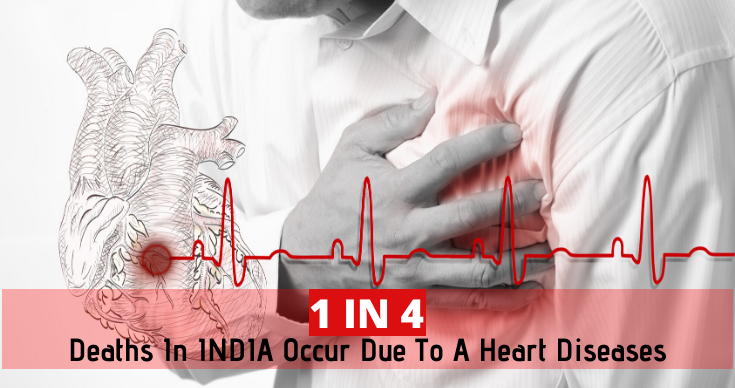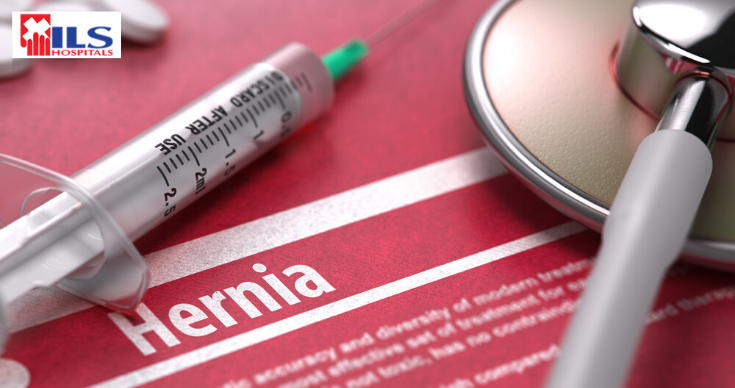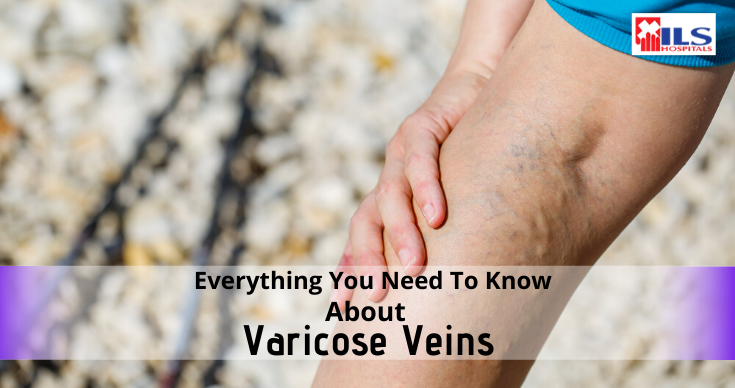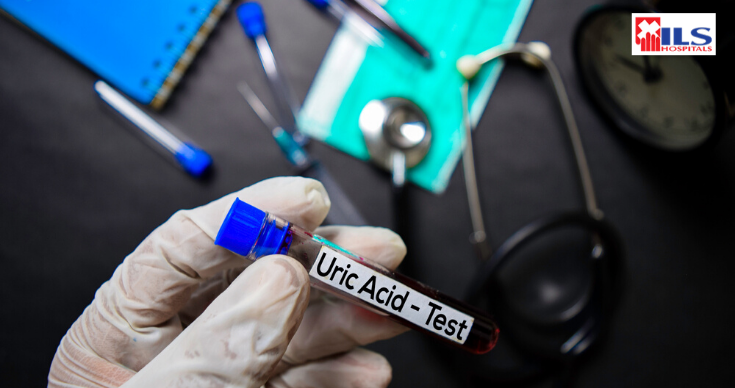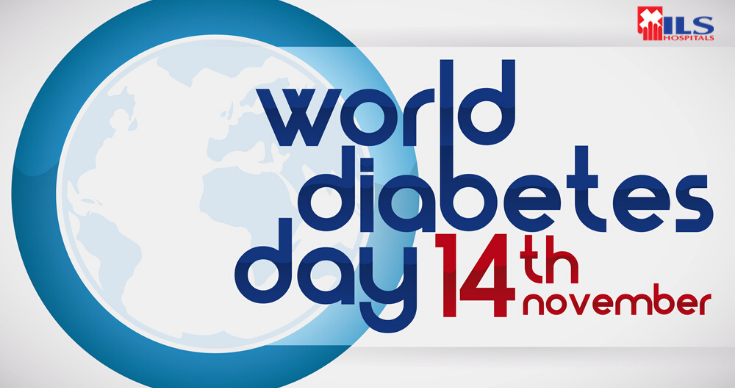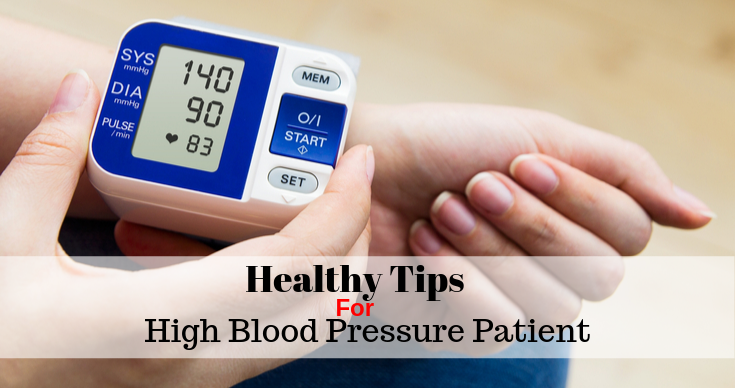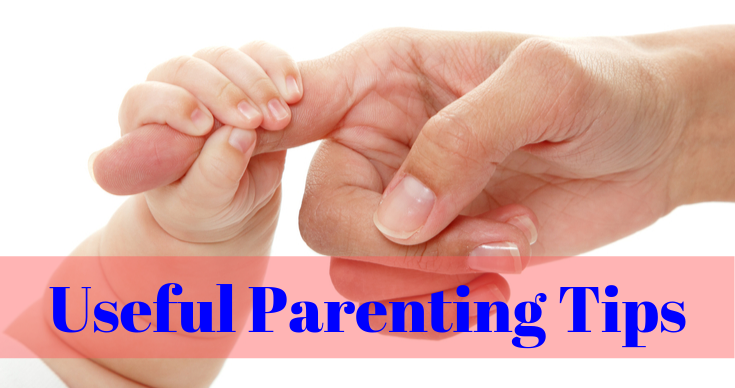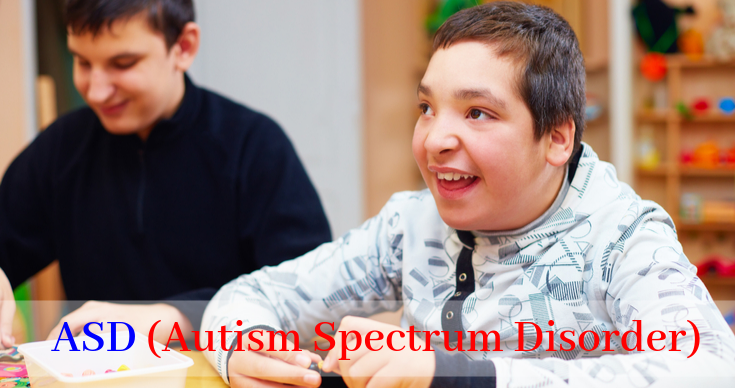Why Are Indians So Vulnerable To Heart Diseases?
We only have one heart and it’s our sole responsibility to take the best care of our heart to make it healthy and keep it in good physical condition. Sadly, there’s an incessant upsurge in heart-related conditions among Indians.
The question that comes to our mind after knowing this fact is why Indians are more susceptible to heart diseases and cardiac emergencies than any other ethnicity? Today, we will talk about 6 reasons why more people are suffering from heart-diseases at an increasing rate in the Indian sub-continent.
1. Chronic stress and hypertension:
Our modern lifestyle is comfortable but stressful. People are constantly stressed about their career, daily commute, personal life and financial conditions. Constant stress is the supreme cause of hypertension or high blood pressure. Healthy blood pressure for an average human is 120/80 mmHg. To manage stress, you should do the following things
– Maintain healthy relationships
– Participate in physical activities
– Eat clean and healthy food
– Get adequate sleep every night
– Practice relaxation techniques.
2. Unhealthy lifestyle choices:
We all know that an unhealthy lifestyle does not benefit our body but still we indulge in them then and now. An unhealthy lifestyle is a lifestyle in which you have harmful habits like smoking, consuming alcohol, eating junk and fast food, and being physically indolent. Take an oath that you would not choose or try to avoid this afore-mentioned lifestyle for yourself.
3. Diabetes:
Diabetes has become a common disease in India and that leads to many cardiovascular diseases. Getting diabetes treatment is paramount as uncontrolled diabetes cause impaired blood vessels of the heart and other vital organs.
4. Obesity:
Indians are getting obese day by day due to various reasons. Many people are suffering from class 3 obesity which can be treated with a bariatric or weight loss surgery.
5. Congenital heart defects:
Many children in India are born with heart abnormalities that lead to serious cardiovascular conditions if not timely diagnosed. It is one of the main factors of increasing heart diseases in our country.
6. Genetic makeup:
Many heart diseases are hereditary and nobody can undo it. Your genetic makeup determines the risk of you or your children inheriting heart-related conditions.
Regrettably, we Indians match the criteria of all the above-mentioned points, and that leads us to be more vulnerable to cardiovascular diseases. If you’ve any heart-related conditions you can easily come to ILS Hospitals, one of the best heart hospitals in Kolkata for your diagnosis and treatment. We will provide you with proper medical advice appropriate for your condition.
Acquaint Yourself With These 4 Different Types Of Hernia
A hernia is an abnormal bulge in the affected area that occurs when the organ or fatty tissues comes out through a weak muscle opening. Hernias are painful and if left unaddressed or untreated can become serious and dangerous (a hernia can strangulate and even burst that leads to grave consequences).
Hernia repair surgery is the ultimate and preferable hernia treatment by the doctors. Most people are not familiar with the different types of hernia. So, we thought to acquaint you with 4 different hernia types for your awareness.
Here are different and common types of hernia
1. Inguinal Hernia
In case of inguinal hernia, a part of the intestine exists through a weak opening in the abdominal muscles. Some symptoms of inguinal hernia are as follows:
-
Pain in the groin area while coughing and lifting anything
-
A visible bulge in the groin area
-
Swollen and painful scrotum or testicles in men.
2. Incisional Hernia
Incisional Hernia occurs due to an unhealed surgical wound of abdominal surgery. The symptoms of an incisional hernia include:
-
Redness and swelling in the bulge
-
Constipation
-
Nausea and vomiting.
3. Umbilical Hernia
This type of hernia is commonly found in new-born babies but that does not mean adults do not encounter umbilical hernia at all. An umbilical hernia is formed in the belly button due to protrusion of an organ or fatty tissues. A few symptoms related to this hernia are as shown below:
-
Painful and discoloured bulge
-
Fever
-
Vomiting
-
Pain in the abdomen.
4. Hiatal Hernia
If the upper part of your stomach exits from its assigned spot and enters into the chest cavity, then it’s known as a hiatal hernia. A hiatal hernia happens due to various reasons like injury or certain surgeries, obesity, old age and abnormal hiatus. The symptoms of hiatal hernia are the following:
- Difficulty swallowing food
- Acid reflux
- Regurgitation or vomiting
- Chest pain
- Abdominal pain
- Constant belching or burping
- Vomiting blood
- Black stools.
There are many more types of hernia but these 4 types are quite common. A hernia cannot be left on its own and should be taken seriously. We offer general and laparoscopic hernia treatment to our patients with this condition. We are one of the best hospitals in Kolkata due to our perfect infrastructure, expert medical team and the latest facilities.
Everything You Need To Know About Varicose Veins
What do we mean by varicose veins? Varicose veins are abnormally enlarged veins that appear to be swollen and magnified. These ostensible veins are often found in the legs.
So why do they occur in the first place? Well, varicose veins form due to defective and damaged valves present in the veins that obstruct blood to flow successfully. Varicose veins can become a critical medical emergency under certain serious complications which we will discuss later in the blog.
Here are some symptoms that confirm the existence of varicose veins.
-
Discoloured veins
-
Skin discolouration
-
Restless leg syndrome
-
Pain and swelling in the affected area
-
Muscle cramps
-
Heaviness in the legs
-
Fatigue.
One thing we have discovered is that the primary cause for varicose veins is malfunctioning veins. Let’s discuss who are more vulnerable to varicose veins.
1. Women (especially when pregnant or on the verge of menopause)
2. Old people
3. A person who does standing jobs
4. People with obesity
5. A person suffering from chronic constipation
6. Individuals with a family history of this medical condition.
The complications involved with varicose veins that require an immediate rush to the hospital are as follows:
-
Clotting of blood
-
Severe bleeding
-
Inflammation of the veins
-
Hyperpigmentation
-
Chronic Venous Insufficiency (CVI).
The doctor will perform these certain diagnostic tests to verify varicose veins.
-
Venogram
-
Duplex ultrasound scan
-
Doppler ultrasound.
Some treatment associated with varicose veins are as follows:
1. Compression stockings
The doctor might suggest you wear compression stockings to subdue the symptoms related to varicose veins.
2. Sclerotherapy
If your varicose veins are not severe, you might be prescribed sclerotherapy as a treatment. In this treatment, the varicose veins are treated with the help of saline injections given at regular sessions.
3. Surgical treatment
Surgery is involved when the patient’s condition becomes critical. The surgical procedures that one might expect with severe varicose veins are
– Vein ligation and stripping
– Endovenous laser therapy
– Endoscopic vein surgery.
Varicose veins are not simply a cosmetic problem as they can cause serious other health-related issues in due course of time. If you’re suffering from varicose veins, you need proper diagnosis and treatment as soon as possible. ILS Hospitals, one of the best hospitals in Salt Lake is here to help you out with unsightly and problematic varicose veins. For more information, get in touch with our team.
How Dangerous Is Hyperuricemia Or Higher Level Of Uric Acid?
To say the least, an “excess of everything is bad”. Hyperuricemia certainly reminds us of this good old proverb. Hyperuricemia is a serious medical condition of high uric acid concentration in the blood. The uric acid levels should be within the normal range or else it may result to many serious and unpalatable health conditions. If your uric acid crosses the normal and expected levels then you have high uric acid levels. You have high uric acid levels when your uric acid is more than 6 mg/dL if you’re a woman and greater than 7 mg/dL in the case of a man.
The main concern is to know whether hyperuricemia is dangerous or not. Hyperuricemia can be injurious and dangerous if one turns a blind eye to it as it can result in many chronic and serious diseases of essential organs like heart and kidney.
Our body excretes uric acid through urine but if the body starts making excess uric acid then it puts pressure on the kidneys to get rid of them. The body makes uric acid through purines which we receive from certain foods (seafood, red meat, some vegetables, mushrooms, alcoholic drinks, etc). An excess of uric acid means you are eating a lot of purines in your diet, thus your extra uric acid will crystallize in mostly your joints and kidneys producing pain and inflammation.
There are a few serious medical issues that are a plain result of hyperuricemia and by default, they help to determine hyperuricemia. They are as follows:
-
Gout (swollen, tender and stiff joints)
-
Kidney stones
-
Kidney diseases and even renal failure
-
Diabetes
-
High blood pressure
-
Cardiovascular conditions.
So what are the causes and are you at risk of hyperuricemia? Let’s see the points below.
-
Obesity
-
Excessive alcohol consumption
-
High-purine diet ( which include alcohol, seafood, and liver meats)
-
The incapability of kidneys to filter properly
-
Certain medications
-
Heredity
To keep your uric acid within the normal range, your doctor will recommend you some drugs or medications as a treatment. If you’ve developed other medical conditions associated with hyperuricemia, then you will be directed to the doctor respective to your condition for treatment. For instance, if you have diabetes, you will require diabetes treatment along with the treatment for hyperuricemia. You will also be required to follow a purine-restricted diet (which include healthy nuts, eggs, low-purine vegetables, and fruits) to normalize the dangerously high levels of uric acid.
Diagnosis of hyperuricemia is done by conducting blood (serum uric acid test) and urine tests.
We, at ILS Hospitals, provide diagnostic tests for high uric acid levels to our patients. ILS Hospitals is one of the best hospitals in Kolkata for diagnostic and accurate medical treatment.
On This Diabetes Day, Let’s Triumph Over Diabetes By Following Some Simple Tips
Living with diabetes is never easy, once you have diabetes there’s nothing you or doctors can do to cure this sad disease. However, you can surely control it by adopting some lifestyle modifications and by getting regular check-ups from a diabetes clinic.
On the occasion of World Diabetes day, let’s take a pledge to beat diabetes against all odds by following these measures:
1. Embrace a diabetes-friendly diet:
There’s a saying, “watch what you eat”, and this is exactly what you need to do if you have diabetes. You should make eating a healthy and properly balanced diet, a significant part of your daily life. Go for foods that regulate your blood sugar levels. Foods that are beneficial for you when you’ve diabetes (either type 1 or type 2) are as follows:
– Fatty fishes
– Eggs
– Leafy Greens like spinach, cabbage, broccoli, cauliflower, etc
– Dry fruits like cashew nuts, almonds, pistachios and walnuts
– Whole grains like brown rice, millet and whole wheat
– Low portions of fruits like strawberries, pears, bananas, apricots, oranges, cherries, guava etc.
2. Eating small and frequent meals:
Skipping your meals is the last thing you want to do if you have diabetes. If you do not want to have large meals, eat small meals frequently to control your blood glucose levels.
3. Shun your sedentary lifestyle:
Living an inactive lifestyle is a strict “no” for people with diabetes, as a sedentary lifestyle leads to serious health concerns like obesity and cardiovascular diseases. Maintaining a healthy weight is your first step to win over diabetes. Certain times, the doctor might suggest bariatric surgery to highly obese diabetic patients. So do include some physical activities of your choice in your life.
4. Abstain from sugary foods:
Diabetics probably know that “sugar” is their worst enemy. Though sounds difficult, you need to abstain from your favourite sweets, chocolates and sugary beverages if you’re dealing with diabetes. Choose sugarfree sweets instead if you have a sweet tooth.
5. Be serious about medications:
Take your medicines on time as prescribed by the doctor to normalize your blood sugar levels.
6. Watch your diabetes:
Keep an eye on your diabetes by getting regular check-ups from a good diabetic clinic. You can always avail our Decoding Diabetes health check up packages.
Do not let your diabetes keep you stressed and distressed. We understand how diabetes can be the worst experience for anyone, so we provide effective diabetes treatment at ILS Hospitals to help our diabetic patients. You are welcome to our hospital for proper diabetes’ diagnosis and treatment.
Follow These Healthy Tips If You Have High Blood Pressure
High blood pressure is a condition in which the blood produces a lot of pressure in the artery walls, an important component of your blood vessels.
If your blood pressure reading exceeds the normal blood pressure range of 120/80, then you have high blood pressure which requires immediate attention. You can check your blood pressure from any good hospitals in Kolkata or use BP monitoring machines at home. There are many reasons for high blood pressure like:
-
Stress
-
Obesity
-
Poor nutrition
-
Chronic diseases and disorders like diabetes, thyroid, kidney diseases, congenital heart abnormalities etc.
-
Sleep apnea
-
High alcohol consumption
-
High cholesterol
-
Smoking
-
Lack of physical movement
-
Unhealthy lifestyle
-
Old age
High blood pressure is a serious condition so maintaining a healthy blood pressure is important for everyone. If you are suffering from high blood pressure, follow these healthy tips as shown below:
-
Maintain a healthy body weight: Being overweight or obese is linked with high blood pressure. So, do your best to have a healthy BMI (Body Mass Index) by following a healthy lifestyle and by not being either underweight or overweight.
-
Stay active: Participate in regular physical activities to lower your high blood pressure. Do activities like walking, cycling, dancing, swimming, yoga and so on. The more you move, the better it is for your blood pressure.
-
Eat a DASH diet: Have a Dash (Dietary Approaches to Stop Hypertension) diet which is a healthy and balanced diet suitable for people with high blood pressure. The DASH diet includes whole grains, fruits, vegetables, lean meats, fish and poultry, nuts and bean and low-fat dairy or no-fat dairy products, low-sodium content and high vitamins and minerals.
-
Sodium-restricted diet: The less sodium you consume, the more your blood pressure will lower so avoid high-sodium foods and beverages. Also, do not add or sprinkle salt on top of your foods if you have high blood pressure or hypertension.
-
Avoid highly-processed foods: High processed foods have a high sodium-content so do not buy them the next time you visit your grocery store.
-
Quit smoking: Smoking has no health benefits and it is responsible for high blood pressure and heart diseases. So, stop smoking right now.
-
Drink less alcohol: Too much alcohol consumption can raise your already alarming blood pressure. So, limit the amount of alcohol you consume and aim to stop it altogether.
-
Be stress-free: It is needless to say that stress causes your blood pressure to increase at an unhealthy level. Try to avoid stress as much as you can because your life matters more than anything in this world.
-
Get regular high-blood pressure check-ups: Visit the best hospital in Kolkata for your monthly blood pressure check-ups. It is important to keep a tab on your blood pressure readings if you are already suffering from hypertension.
In conclusion, if you follow these healthy tips you will see a difference in your blood pressure levels. If your hypertension still does not improve then it’s time for you to go to a heart specialist or cardiologist to find the underlying cause behind your high levels of blood pressure. We are one of the best heart hospitals in Kolkata.
Some Useful Parenting Tips For Every New Parent
Parenting is no walk in the park and it take decades for parents to master this skill. New parents are often clueless about many things related to newborn care and are always doubting themselves for making a mistakes. Well, thankfully there are parenting guidelines, books, videos and understanding paediatric doctors available to guide you and ease your difficulties. In such situations, only experiences work but there is no harm in taking note of essential tips while handling your infant.
Here are some necessary tips that can be followed by every parent with a newborn:
-
Handle the baby with care: Always wash your hands properly with soap and clean water before touching your baby. Also, tell others to do the same, or at least use hand sanitizer instead, if washing is not possible everytime. Your infant is fragile, so always lift your baby by supporting his or her head and neck and never shake your baby or be rough with them.
-
Decide visiting rules: Your kith and kin will be overenthusiastic about meeting and playing with the baby but there should be certain boundaries that only you can create for them. Limit the amount of their visiting time and make a specific day dedicated to visitors.
-
Comfort a crying baby: Babies talk by crying and they cry because they want you to know that they need something. If your baby is crying it must be because of hunger, boredom, uneasiness, dirty diaper, lack of sleep and feeling too hot or too cold. So, do find the root cause of your baby’s constant howling and help them out. Try to calm your baby by singing or humming softly and rocking them. Also, distract your baby and take them out for a walk. Note that if your infant cries continuously, it might be due to an illness that would require you to rush to the paediatric doctor immediately.
-
Bond with your sweetheart: To bond with your baby, talk to them even when you know that they don’t understand you. You can also sing lullabies and cuddle with them to give them attention. Give the father-baby duo enough time to connect by making partner do simple chores for the baby like bathing, feeding and putting to sleep.
-
Always be prepared: Your baby follows a schedule on his own accord. So, making arrangements beforehand will save your time and energy and will surely reduce your stress and anxiety. Prepare yourself for the next feeding in advance by putting warm water in a thermos and keeping diapers and other essentials within your reach.
-
Diaper rash cure: Diaper rash is every new parent’s biggest nightmare. The rashes occur when the baby wears a wet and dirty nappy for many hours and also some babies are sensitive to diapers. These rashes can be treated by applying paediatrician-prescribed diaper rash cream on your baby’s bottom. Also, let your baby stay without a diaper for a few hours. To prevent diaper rashes in the future, give your baby a diaper-change whenever the nappy gets dirty. Clean the baby’s bottom with warm water and mild unscented soap and let it air dry. Let your baby go diaper-free whenever possible.
-
Look after yourself: Eat a nutritious diet, drink plenty of water and try to get some shut-eye by dividing night shifts between you and your partner. Spend some quality time with your partner and with friends and family members as well. Ask for additional helping hands whenever needed. Also, seek counseling because parenting can take a toll on your mental health.
-
Vaccinate on time: Vaccination is done to safeguard your child from serious ailments so do consult a good paediatric doctor for vaccine shots.
Thus, we hope that we provided you with crucial information on the infant’s parenting tips for the recent parents. We, at ILS Hospitals, have a team of experienced paediatric doctors in Kolkata who would ensure good health of your precious baby.
Gynecological Problems Faced By Women At Their 20 Or 30s.
There are certain gynecological issues faced by many women of all age groups during their lifetime as per the renowned gynecologist. Here we will discuss about the issues face by the women at their 20 or 30s.
In India, many women are not provided with enough information about gynecological problems. Lack of gynae health and sex education also plays a pivotal role in a woman’s life. In our society, gynecological problems and sexual health of a woman is usually neglected.
Generally, women of this age group may face many gynecological complications specially once after getting married or involve in sexual activities. So, let’s shed some light on the topic of such gynecological problems:
-
Hormonal imbalance: Imbalanced hormone in women is a common condition of all ages. Even after getting married, as the women become sexually-active and usage of certain birth-control methods can also contribute to this factor.
-
Irregular or missed periods: Hormonal, emotional, psychological and lifestyle changes can cause irregularities in your periods. In married women, birth control pills can also have a side effect on menstruation.
-
Vaginitis: It is also called vaginal inflammation where the women have symptoms like itching, swelling, burning, redness or soreness in her vaginal area. It is usually caused by a change in the normal balance of vaginal bacteria or due to an infection.
-
Dyspareunia: Painful sexual intercourse is common in married women. The pain in genitals can last hours after sexual activity. If you suffer from pain during intercourse and abnormal vaginal discharge and bleeding, it’s time for you to consult a trusted gynecologist.
-
Sexually-transmitted infection: It affect the female reproductive organs. It happens due to unprotected sex with the infected person which causes the sexually-transmitted bacteria to enter the woman’s vagina and infect the entire uterus and fallopian tubes. It can be treated well if discovered early by medical professionals or gynecologists.
-
Endometriosis: It happens when the tissues in the uterine lining grow outside the uterus resulting in painful menstruation and infertility. It’s a serious medical condition that requires you to book an appointment with the gynecologist for proper treatment.
-
Pelvic inflammatory disease: Pelvic inflammatory disease or PID is an inflammation of the female reproductive organs due to infection. Bacteria like gonorrhea and chlamydia first enter the vagina and cause an infection then this infection move into the pelvic organs causing PID. It can become xtremely harmful and lead to many complications if the infection spreads and left untreated.
So, we hope that the above information enlightens you about some gynecological health conditions. If you suffer from any of the above conditions, refer to a gynecologist in Kolkata.
The 3 Different Types Of ADHD You Should Know About
You have probably heard of the term ADHD a lot. ADHD means Attention Deficit Hyperactive Disorder. If your child or anyone in your family is hyperactive or cannot concentrate on a specific task for much time, it is possible that they might be suffering from ADHD. It is a chronic condition and most of the time, it is seen among children. It may also occur in adults, but that is very rare. A person suffering from ADHD mainly shows three types of behaviors. They are inattentiveness, impulsivity and hyperactivity. Today, on behalf of ILS Hospitals, one of the best hospitals in Kolkata, we are going to tell you the different types of ADHD.
Predominantly Inattentive ADHD
The name suggests itself that someone who has this type of ADHD has difficulty in paying attention. Some of the symptoms apart from inattentiveness are:
-
If someone does not pay much attention to details of any important task or situation.
-
Everyone makes careless mistakes, but if someone makes a lot of careless mistakes all the time, it is worrisome.
-
Due to inattentiveness, they will fail to pay attention and keep on doing the piece of task again and again.
-
Zoning out or not listening when someone is talking is a pretty common occurrence.
-
Being unable to follow or understand instructions.
-
Avoiding tasks that involve effort.
-
Being distracted or forgetful is also a sign.
-
The habit of losing things regularly that are needed to complete tasks.
If you have at least five symptoms out of eight, then you are most likely to have this kind of ADHD.
Predominantly Hyperactive-Impulsive ADHD
It is more common in kids. If your kids are very hyper-active and move a lot around constantly then it is possible that they have this condition.
-
Fidgeting and Squirming a lot.
-
Getting up often or not being able to stay at one seat for a long time.
-
Running or climbing anywhere at inappropriate times.
-
Having trouble playing quietly.
-
Talking too much.
-
Talking out of turn or blurting out the first thing that comes into mind.
-
Interrupting a lot in between other’s conversations.
Combined ADHD
As the name suggests combined ADHD is caused if you have symptoms combining both the other types. If you are both inattentive and hyperactive, it’s a more severe condition. Combined ADHD is the most common type of ADHD. People showing only one or two symptoms doesn’t likely have ADHD. Most people who have ADHD have these symptoms on a more severe level.
Usually, for kids, these symptoms can be detected easily before they turn 7 years old. But there is no particular test to diagnose the type of ADHD. In a lot of cases, the symptoms tend to change over time especially in adults. ILS Hospitals, being one of the best hospitals in Kolkata, provides effective treatment in the form of therapy and medication.
10 signs that indicates your child might have autism
In simple words, Autism (Autism Spectrum Disorder) is a neurological spectrum disorder in which the person lacks basic communication (both verbal and non-verbal) skills and social skills. There is no obvious reason behind autism but it is believed by many psychiatrists that ASD in children happens due to heredity, genetic disorders and deformity in the brain structure.
Children show signs of ASD after age 1 or 2 so it’s important for the parents to observe their child’s strange signs. The signs that might indicate that your child is autistic are as follows:
-
Prefers to always stay alone: It’s very odd for a child to prefer being alone than being in the company of other children. Autistic children live in their own world and does not know how to make friends and socially interact with people.
-
Inflexible nature: If your child follows a strict routine even at such a tender age, there is nothing to be proud of because it is a warning sign of ASD. Children with autism religiously follow their fixed schedule and have difficulty while dealing with even the most minor changes in their routine.
-
Repetitive behaviors: Your child may indulge in repetitive behaviors if he or she suffers from autism. The repetitive behaviors include- repeating words or phrases, lining up toys, incessant rocking, staring at lights, twirling, watching moving objects and so on.
-
Does not like physical affection: If your child does not like to be cuddled or even given a pat on the back, or be embraced when upset, it may indicate autism disorder.
-
Disinterested, unaware and unresponsive: A very unusual sign of autism is no eye contact which is seriously worrying for many parents. If your child always seems detached from the world and does not respond to you at all and appears to you deaf, chances are your child has autism.
-
Robot-like personality: Observe whether your child speaks in a flat robot-like tone with no emotions, has atypical posture and if walks on tiptoes.
-
Obsessive behavior: If your child has an obsession and special interest for certain topics and always craves for precise factual information, it can be a sign of ASD. OCD (Over- Compulsive disorder) and Autism go hand in hand so do watch for such signals and talk to a child psychiatrist.
-
Highly unemotional:Autistic children do not show even the basic human emotion in their speech, facial expressions and do not understand anyone’s feelings nor can relate to them. They may look aloof and cold to the entire world but the simple fact remains that they are poor at expressing themselves.
-
Self-harming behavior: Notice if your child practice self-injurious behavior like headbanging, self-scratching, hair pulling and face or head-slapping. Self-harm behavior is harmful and requires medical attention so consult a paediatric psychiatrist if your child physically harms him/herself.
-
Meltdowns: If your child has frequent meltdowns, it can make your life troublesome. There is a difference between normal tantrums and autistic meltdowns, so do not confuse the two and seek professional help, if needed.
Thus, if you notice the above-mentioned signs in your child, consider consulting a child psychiatrist without any delay. We, at ILS Hospitals, have trained and compassionate psychiatrists who will provide your child with the supportive care and counseling needed to better his or her life.











